Introduction
Ensuring the safety and cleanliness of baby toys is crucial for your little one’s health. Babies love to put toys in their mouths, which can introduce germs and bacteria. Regular cleaning and sterilization help prevent infections and keep your baby safe. In this article, we will guide you through the best methods to clean and sterilize baby toys safely.
Why cleaning and sterilizing baby toys is
important?
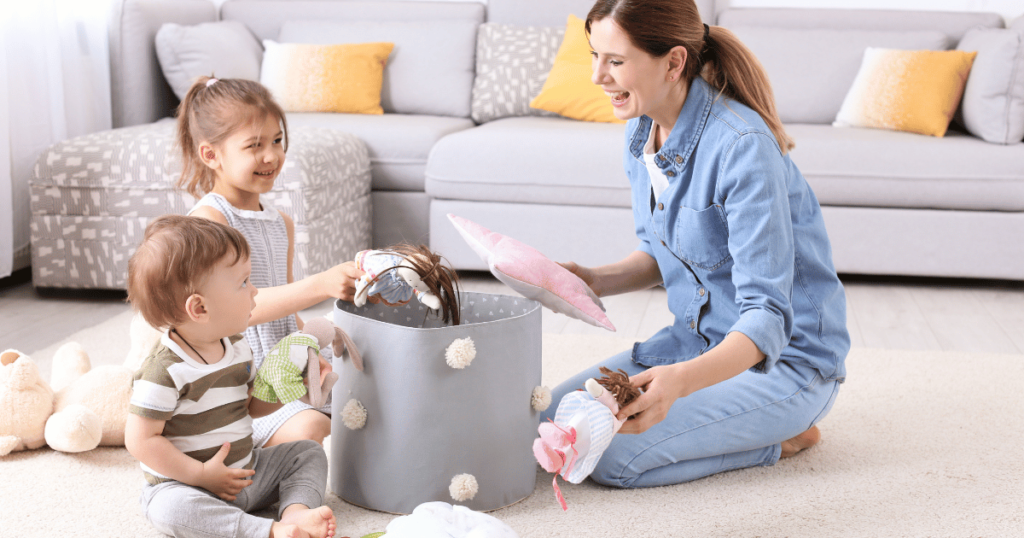
Babies have developing immune systems, making them more vulnerable to infections. Toys can quickly become dirty and germ-ridden, especially those frequently handled or mouthed. Cleaning and sterilizing toys remove dirt, bacteria, and other harmful microorganisms, ensuring a safe play environment.
What materials you will need?
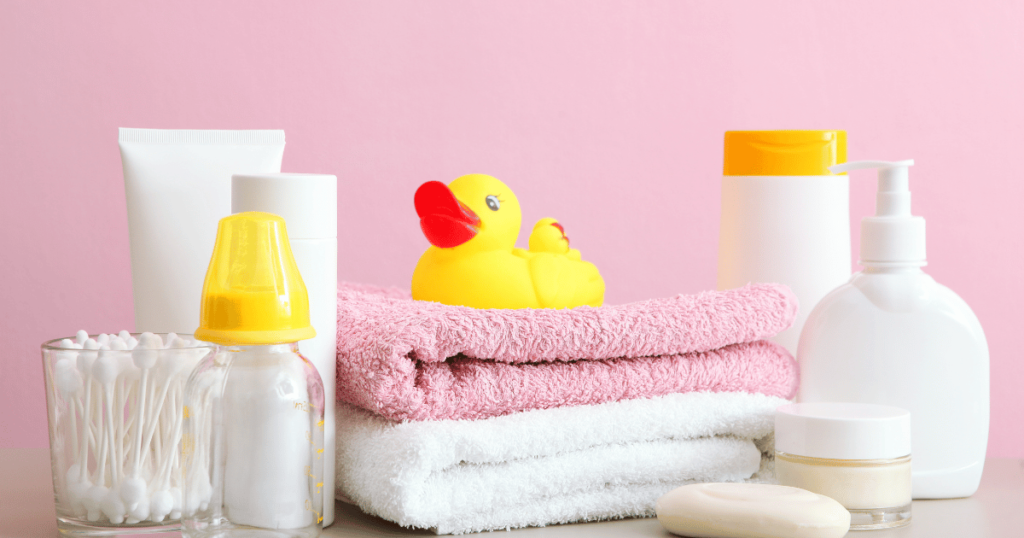
Before starting, gather the following materials:
- Mild dish soap
- Warm water
- White vinegar
- Baking soda
- A soft cloth or sponge
- Toothbrush
- Rubbing alcohol (70% isopropyl)
- A clean towel
- A large basin or sink
- Dishwasher (optional)
Step-by-Step Guide to Cleaning Baby Toys
#1 Identify the Toy Material
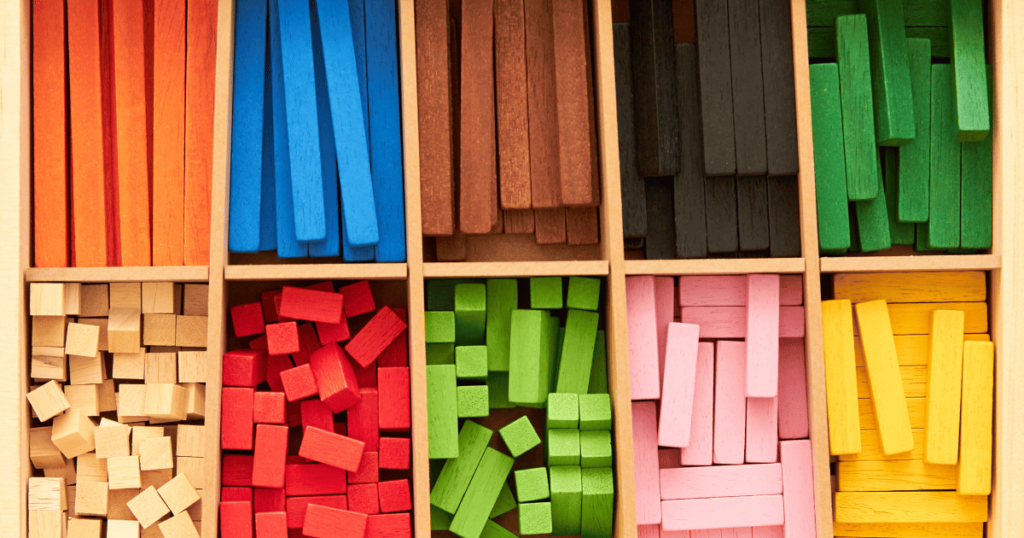
Different toys require different cleaning methods based on their material. Common toy materials include:
- Plastic
- Rubber
- Fabric
- Wood
- Electronic components
Understanding the material helps you choose the best cleaning method.
#2 Clean Plastic and Rubber Toys
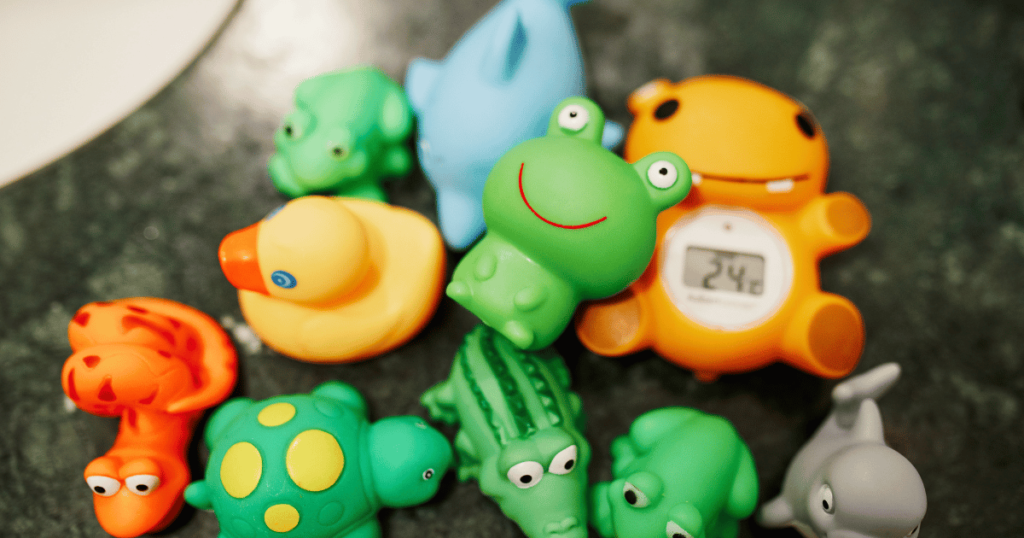
Plastic and rubber toys are relatively easy to clean.
Hand Washing:
- Fill a basin or sink with warm water and a few drops of mild dish soap.
- Submerge the toys and scrub them with a soft cloth or sponge.
- Use a toothbrush to clean small crevices and hard-to-reach areas.
- Rinse the toys thoroughly with warm water.
- Allow them to air dry on a clean towel.
Dishwasher Cleaning:
- Place dishwasher-safe toys on the top rack of your dishwasher.
- Use a gentle cycle with mild detergent.
- Ensure the toys are heat-resistant to avoid damage.
- Allow the toys to dry completely before giving them back to your baby.
#3 Clean Fabric Toys
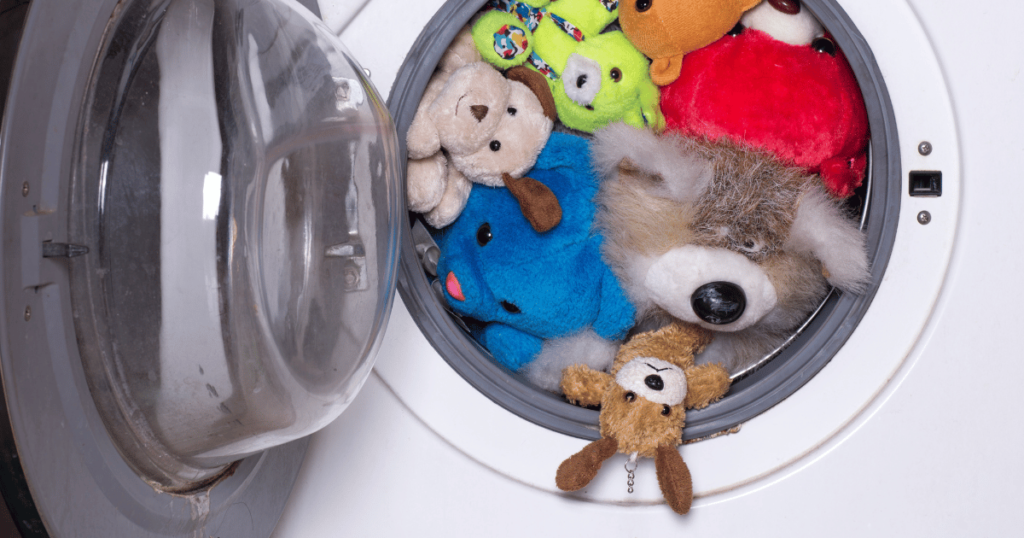
Fabric toys like stuffed animals can harbor dust and bacteria.
Machine Washing:
- Check the toy’s label for washing instructions.
- Place the toy in a mesh laundry bag to protect it.
- Use a gentle cycle with mild detergent.
- Let the item air dry or use a low heat setting on the dryer.
Hand Washing:
- Fill a basin with warm water and mild detergent.
- Submerge the toy and gently scrub it.
- Rinse thoroughly with clean water.
- Squeeze out excess water and allow the toy to air dry.
#4 Clean Wooden Toys
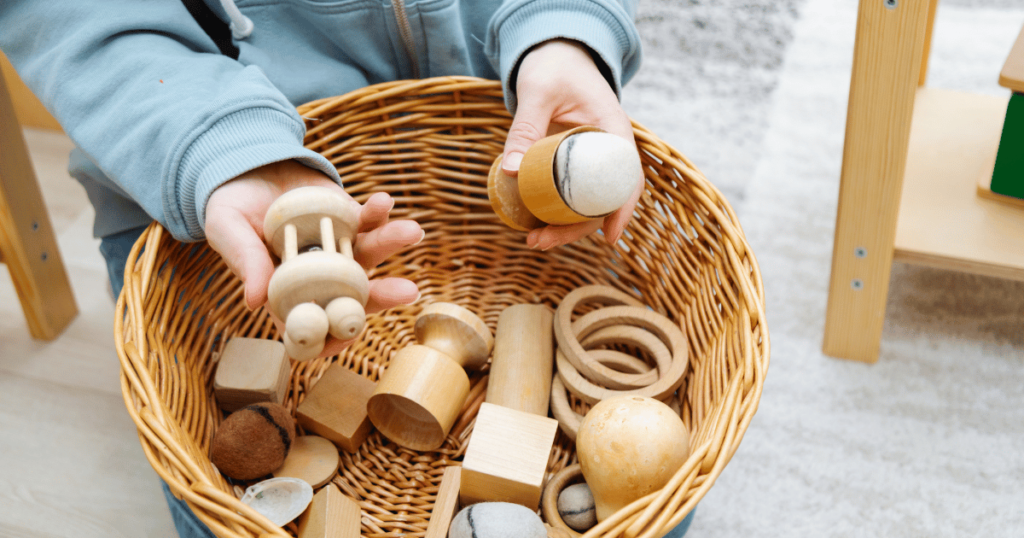
Wooden toys are delicate and should not be submerged in water.
Surface Cleaning:
- Wipe the toy with a damp cloth soaked in a mixture of water and white vinegar.
- Use a toothbrush to clean grooves and small areas.
- Wipe the toy with a clean, dry cloth to remove excess moisture.
#5 Clean Electronic Toys
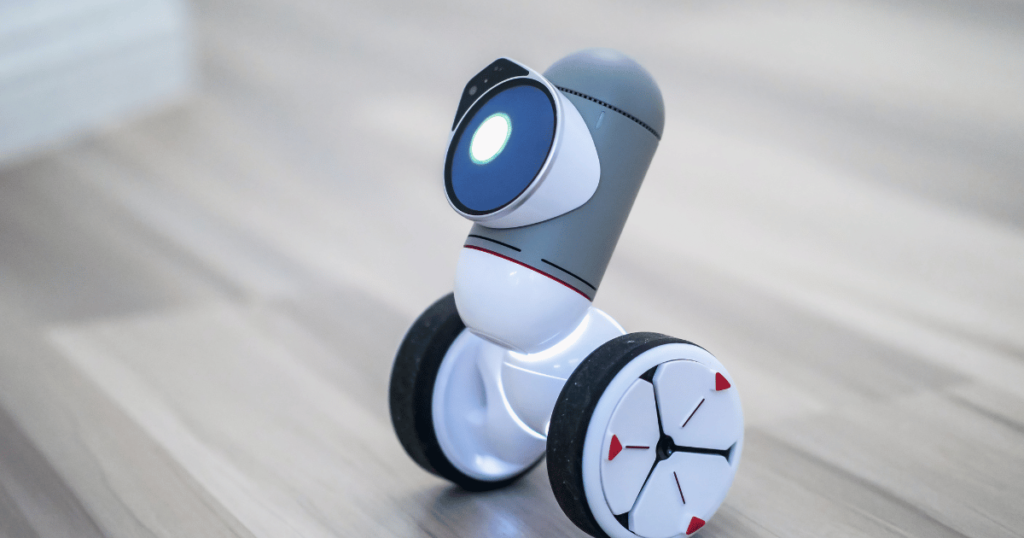
Electronic toys need careful handling to avoid water damage.
Surface Cleaning:
- Remove batteries before cleaning.
- Wipe the toy’s surface with a cloth dampened with water and mild soap solution.
- Avoid getting water into electronic components.
- Use a dry cloth to remove any moisture.
Step-by-Step Guide to Sterilizing Baby Toys
#1 Boiling Water Method
Boiling is an effective way to sterilize non-electronic toys.
- Heat a pot of water until it reaches a rolling boil.
- Submerge the toys in boiling water for 3-5 minutes.
- Use tongs to remove the toys and place them on a clean towel to air dry.
#2 Steam Sterilization
Steam sterilizers, often used for baby bottles, can also sterilize toys.
- Follow the manufacturer’s instructions for the steam sterilizer.
- Place the toys in the sterilizer and run a complete cycle.
- Allow the toys to cool and dry before use.
#3 Vinegar Solution
Vinegar is a natural disinfectant.
- Pour equal amounts of white vinegar and water into a spray bottle.
- Spray the solution on the toys and let it sit for 10 minutes.
- Wipe the toys with a clean, damp cloth and allow them to air dry
#4 Rubbing Alcohol
Rubbing alcohol kills germs effectively.
- Dampen a cloth with rubbing alcohol (70% isopropyl).
- Wipe the toy’s surface thoroughly.
- Allow the toys to air dry, ensuring the alcohol has evaporated completely.
How Often Should You Clean and Sterilize Baby
Toys?
The frequency of cleaning depends on the toy’s usage:
- Daily: Clean toys that are mouthed frequently or used during feeding.
- Weekly: Clean toys that are handled often but not mouthed.
- Monthly: Sterilize all toys to ensure they remain germ-free.
Additional Tips for Safe Cleaning
- Always read and follow the toy manufacturer’s cleaning instructions.
- Avoid using harsh chemicals or bleach, which can leave harmful residues.
- Ensure toys are completely dry before giving them back to your baby to prevent mold growth.
- Regularly inspect toys for signs of damage or wear and replace them as needed.
Conclusion
Keeping baby toys clean and sterilized is essential for your baby’s health and safety. By following the steps outlined in this guide, you can ensure your little one’s toys are free from harmful germs and bacteria. Regular cleaning and sterilization not only protect your baby but also extend the life of their favorite toys. Happy cleaning!
Other References
- American Academy of Pediatrics (AAP)
- BabyCenter
- What to Expect
- Healthy Children
- Verywell Family
- Parents
- Montessori ‘n’ Such
- The Montessori Notebook
- NAEYC
- Consumer Product Safety Commission (CPSC)
- The Spruce
- CDC Guidelines on Cleaning and Disinfecting
- American Academy of Pediatrics: Toy Safety Tips
- Zero to Three
- Toy Association
More to Read
- How to bathe a newborn baby in 13 steps: The comprehensive guide
- Getting the temperature just Right: A guide to baby bath water
- Bath Time: How often should you wash your little one
- Baby Bathtubs: The Best 5 Ways to Store Baby Bathtubs in 2024
- 4 Steps to Choose a Collapsible Baby Bathtub in 2024
- The Best 5 Baby Bathtubs for Small Space in 2024
- The Best 5 Inflatable Baby Bathtubs In 2024

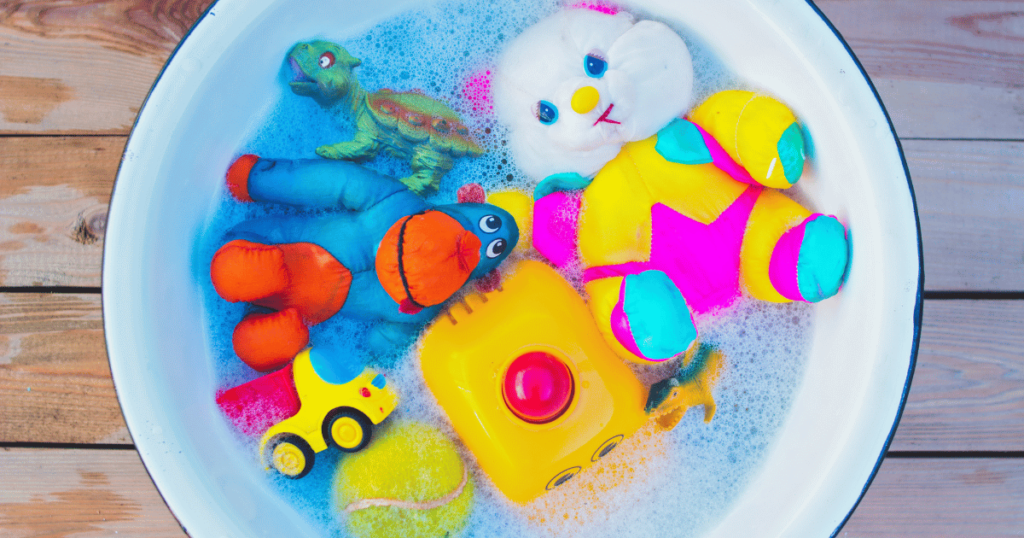
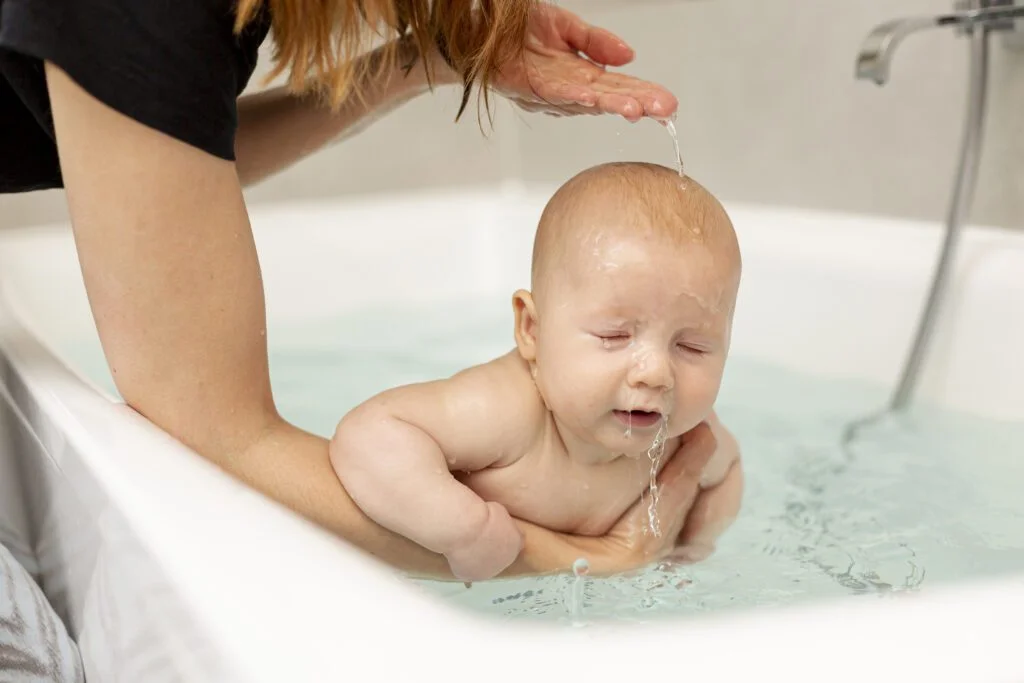

Generally I do not read post on blogs, however I wish to say that this write-up very pressured me to check
out and do it! Your writing taste has been surprised me.
Thanks, quite nice article.!